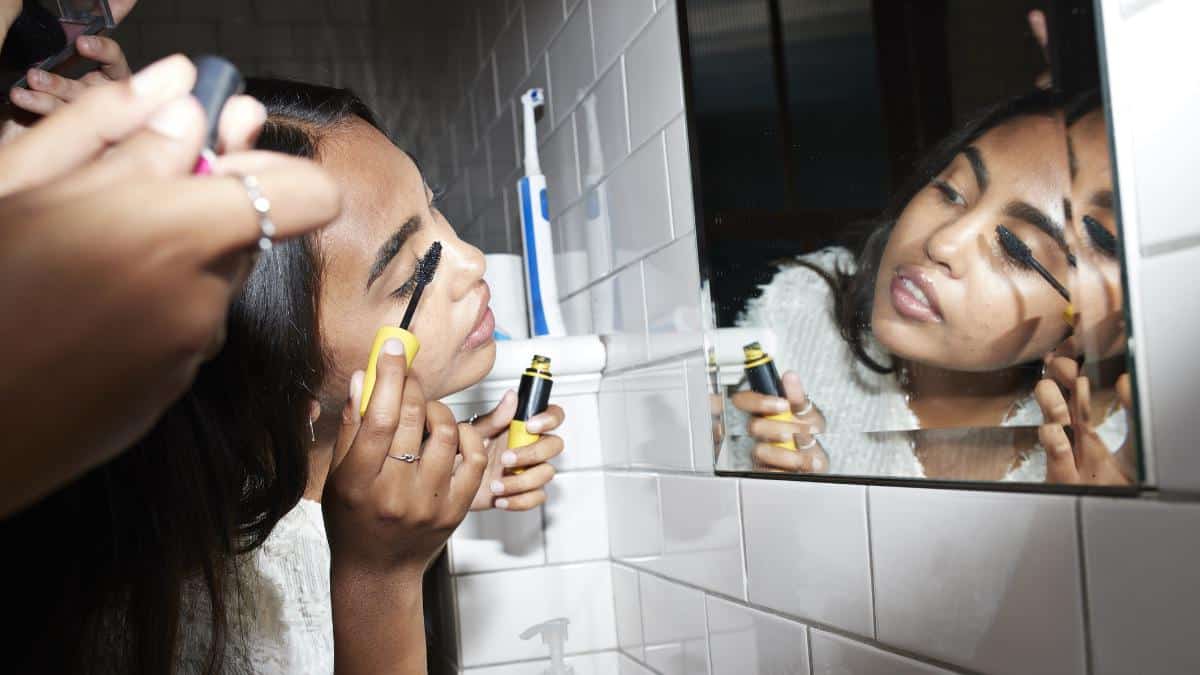
Your Makeup Is Probably Toxic. The U.S. Senate Is Trying to Protect You

High levels of a marker for toxic “forever” substances have been found in 52 percent of makeup products tested in a new study. Accordingly, the U.S. Senate has recently moved to ban them from cosmetics.
According to CNN, per- and polyfluoroalkyl substances (PFAS) are a class of man-made chemicals that are pervasive in modern life. They’re widely used because they’re resistant to heat, water and oil, the Pennsylvania Department of Environmental Protection (PA DEP) reported. A 2015 report by the CDC detected PFAS in the blood of 97 percent of Americans. The U.S. Environmental Protection Agency (EPA) believes most people have been exposed to them through food, water, clothing, furniture, etc. In homes, PFAS are most commonly found in non-stick cookware Teflon coatings, fast food wrappers, shampoo, detergent and paint. Outside the home, they’re used in carpeting, commercial aircrafts, firefighting foams and more.
The EPA believes these chemicals lead to adverse health effects in humans. PFAS are endocrine disruptors and can interfere with natural hormones in people’s bodies. PFAS have also been linked to cancer, thyroid disease, liver damage and decreased fertility. The toxins even increase the risk of severe coronavirus. PFAS are often called “forever” chemicals because they do not readily degrade or break down in the environment with air, sun or water, the PA DEP reported. They also persist and bioaccumulate in humans and animals over time, increasing multiple health risks.
A recent study of makeups found that 52 percent of products surveyed in the United States and Canada showed high levels of a marker for PFAS. In cosmetics, the forever chemicals are intentionally added to make skin appear shiny or to create consistent, smooth products, CNN reported. The study, published in the journal Environmental Science & Technology Letters, found the highest levels of PFAS in waterproof mascara (82 percent), foundations (63 percent) and long-lasting lipstick (62 percent).
“It’s a little shocking and hopefully a wake-up call for the cosmetics industry in terms of how widespread the PFAS contamination is across types of makeup products,” David Andrews told CNN. Andrews is a senior scientist for the Environmental Working Group (EWG) who was not involved with the study.
Additionally, 88 percent of tested products failed to disclose on their labels any ingredients that explain those markers, despite a U.S. Food and Drug Administration requirement to do so, CNN reported.
“PFAS chemicals are not necessary for makeup. Given their large potential for harm, I believe they should not be used in any personal care products,” the study’s co-author Arlene Blum said in a press statement.
“There’s no way for an average consumer to read a label and understand what’s in the product they just purchased,” Graham Peaslee, the study’s principal investigator, told The Washington Post. “They can’t trust the label, and that can be fixed.”
In response to the study, the U.S. Senate introduced the “No PFAS in Cosmetics Act,” a bill that would ban the addition of PFAS into cosmetics. According to CNN, the proposed act would direct the FDA to issue a proposed rule banning the intentional addition of PFAS in cosmetics within 270 days of enactment, with a final rule to be issued 90 days thereafter.
Democratic Rep. Debbie Dingell of Michigan told CNN, “These chemicals are in products that we use every single day and most people don’t even know the danger they face daily.” Dingell introduced the bill in the House while Republican Sen. Susan Collins of Maine and Democratic Sen. Richard Blumenthal of Connecticut did so in the Senate.
“Americans should be able to trust that the products they are applying to their hair or skin are safe,” Collins of Maine said in the press statement. “To help protect people from further exposure to PFAS, our bill would require the FDA to ban the addition of PFAS to cosmetics products,” she added.
The news report included a list of recommendations to avoid PFAS in cosmetics:
- Avoid waterproof or long-lasting products.
- Purchase from brands that are transparent about their supply chain and that strive to use safe ingredients and packaging.
- Don’t assume “organic” or “natural” means it actually is healthy.
- Use EWG’s Skin Deep database to research specific products.

 233k
233k  41k
41k  Subscribe
Subscribe 